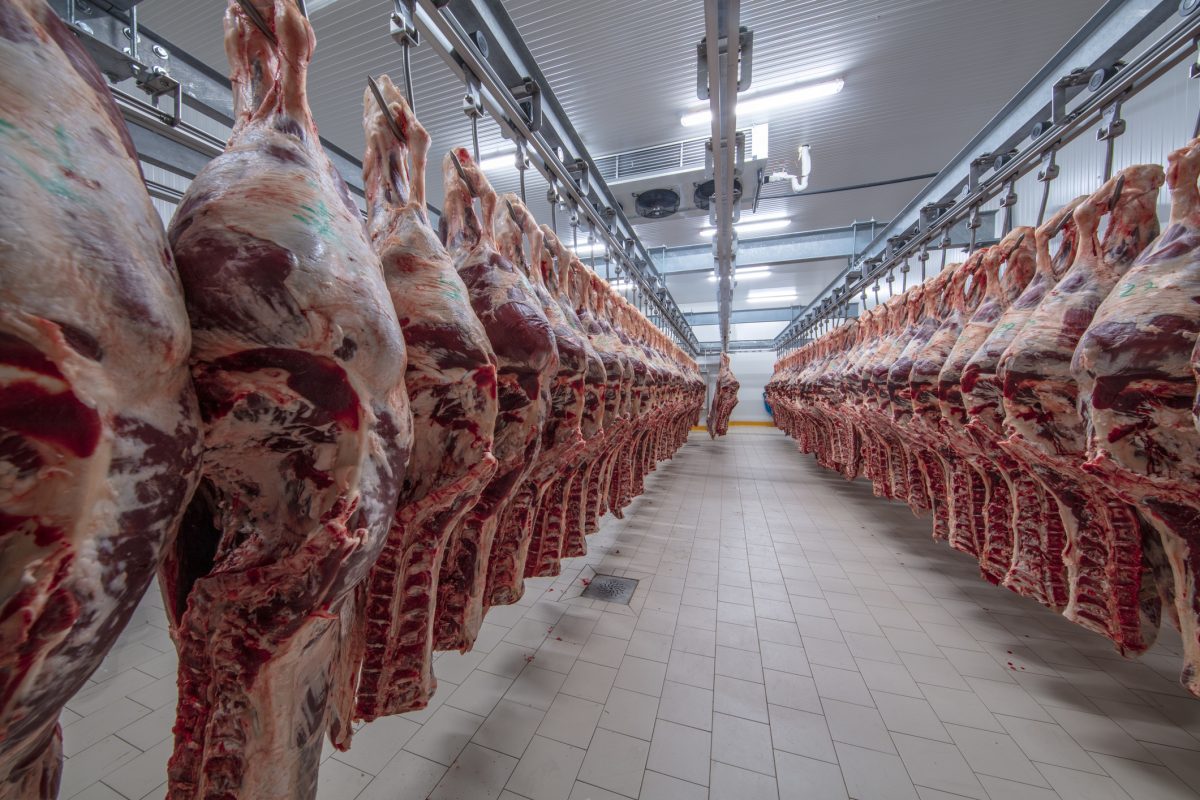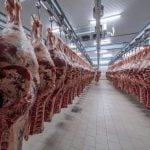Unionized workers at Cargill’s cattle slaughter and processing plant at High River, Alta. will start strike action next month unless a deal can be reached with the company, their union said Wednesday.
A strike would begin at High River no sooner than Dec. 6 at 12:01 a.m. if a new collective bargaining agreement isn’t reached before then, United Food and Commercial Workers (UFCW) Local 401 said in a release Wednesday.
UFCW, which represents over 2,000 workers at the High River plant, said Wednesday it had served the company with strike notice following a Nov. 4 strike vote.
Read Also

U.S. livestock: Cattle futures rise, hogs fall on WASDE
Chicago cattle futures rose while hogs slipped back as the USDA raised its forecast for 2026 pork and beef production….
Out of about 1,400 employees voting, about 97 per cent “voted in favour of strike action if the company does not make them a fair offer,” UFCW said in a release.
The workers’ previous agreement expired at the end of 2020. The union said Oct. 18 it had asked government-appointed mediators to leave negotiations after just a day of mediation, so a strike vote could be conducted.
Asked via email about the strike vote, Cargill representatives weren’t immediately available for comment Wednesday.
“A picket line will be highly visible, and a strike appears to be a viable weapon in achieving a fair offer in negotiations,” UFCW said, adding “it is believed that any attempts by the company to employ a scab strategy will fall short as available labour will be sparse.”
As was made clear in April last year due to COVID-19 outbreaks among employees, and in a flood in 2013, a work stoppage at High River has the potential to weigh on throughput of beef cattle in Western Canada.
High River, whose beef customers include McDonald’s among others, has capacity to slaughter about 4,500 cattle per day and is estimated to represent about 36 per cent of Canada’s domestic beef processing capacity.
“Workers at food plants like Cargill, JBS, Olymel and Maple Leaf have some of the most dangerous and demanding jobs in the world. These workers want what all of us want — respect, recognition, a safe workplace, and fair compensation,” the union said.
Cargill workers, UFCW added, “do not have mixed feelings about issues at the plant. They are not ambivalent about picketing and doing what needs to be done to fight this fight and get a fair offer.”
A “variety of other actions” could also be brought to bear, the union said. “Consumers could be asked to avoid the consumption of beef until Cargill workers are treated fairly.”
Picketing and flyering at “other workplaces” selling Cargill products could also happen, UFCW said. “Albertans may even be confronted by picketing Cargill workers as they approach the drive-thru at McDonald’s.”
UFCW had said in June that worker wages remain at the top of the list in negotiations. On top of the physical demands of the work, in the COVID-19 pandemic “we finally have seen recognition in society that the work that employees at Cargill do is essential… If you’re going to call them heroes, then they should be paid like heroes.”
The union said in June its employees were “forced to work during the pandemic taking extraordinary risk upon themselves and their families” and “should be compensated for their suffering having worked at the site of the largest outbreak in North America.”
Furthermore, UFCW said, “global meat consumption is up, and analysts are saying that Cargill is more profitable now then they have been in 156 years.”
The union’s list of proposals also include “retroactivity” of pay back to when the World Health Organization declared COVID-19 to be a pandemic.
Other proposals from the union include establishment of a Cargill-funded “education and training fund” for employees, apprenticeship programs and the use of line speed clocks “in all areas” of the plant.
Stemming from the pandemic, the union also proposes 10 paid sick leave days plus improvements relating to benefits, pensions, personal leave, leaves of absence and vacation time due to long-distance international travel.
Cargill’s other beef plants in Canada include a slaughter plant at Guelph, Ont., plus case-ready meat facilities at Calgary, Guelph and Chambly, Que. and beef patty processing plants at Spruce Grove, Alta. and Brampton, Ont. — Glacier FarmMedia Network















